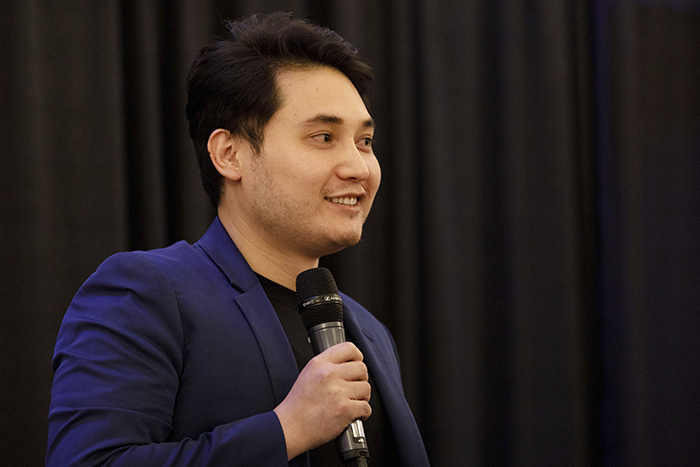In the realm of modern journalism and activism, Andy Ngo stands as a controversial and polarizing figure. Born in 1986 in Vietnam, Ngo’s journey is marked by a relentless pursuit of truth, often at the expense of personal safety. This article aims to explore the life, experiences, and contributions of Andy Ngo, shedding light on the man behind the headlines.
The Biography of Andy Ngo
Early Life and Education:
Andy Ngo’s early life was shaped by the complexities of political unrest and migration. Fleeing the tumultuous political landscape of Vietnam, his family sought refuge in the United States when he was a young child. Settling in Portland, Oregon, Ngo’s formative years were marked by the challenges of adapting to a new culture.
Educationally, Ngo pursued a Bachelor of Arts in Political Science at the University of California, Los Angeles (UCLA). This academic background laid the groundwork for his later endeavors as a journalist and commentator, instilling in him a deep understanding of political dynamics.
Journalistic Career:
Ngo’s foray into journalism began with a focus on documenting the rise of radical ideologies, particularly within the realm of left-wing activism. His early work covered protests and demonstrations, where he started to observe and analyze the evolving dynamics of political movements.
One of the defining moments in Ngo’s career occurred during the Occupy Portland protests in 2011. This experience ignited his passion for investigative journalism, prompting him to delve deeper into the motivations and actions of various activist groups.
Quillette and the Exposure of Antifa:
In 2017, Ngo joined Quillette, an online magazine that often publishes content challenging mainstream narratives. Here, he found a platform to express his views on the growing influence of Antifa, a loosely organized collective of left-wing activists known for their confrontational tactics.
Ngo’s reporting on Antifa garnered both praise and criticism. Supporters lauded his courage in exposing what he saw as the dark underbelly of left-wing extremism, while critics accused him of bias and questioned the accuracy of his reporting.
The Assault and Aftermath:
Ngo’s work brought him into direct conflict with Antifa members, leading to a highly publicized incident in June 2019. While covering a protest in Portland, Ngo was physically attacked by masked individuals affiliated with Antifa. The incident left him with injuries and sparked a renewed debate on the limits of journalistic freedom and the dangers faced by reporters covering contentious events.
In the aftermath of the assault, Ngo’s visibility increased, making him a symbol of resistance against what he perceived as unchecked radicalism. He became a sought-after commentator on news networks, sharing his insights on the ideological clashes that were increasingly defining the American political landscape.
Criticism and Controversies:
Ngo’s work has not been without its share of controversy. Critics argue that his reporting is biased and that he selectively targets left-wing groups while downplaying right-wing extremism. Some have also raised questions about the ethics of his approach, arguing that his involvement in the events he covers compromises the objectivity of his reporting.
Additionally, concerns have been raised about the potential impact of Ngo’s work on the safety of activists and the potential for further violence. This has fueled a broader discussion about the responsibilities of journalists in covering highly charged and potentially dangerous situations.
Impact on Journalism and Activism:
Regardless of one’s stance on Ngo’s reporting, it is undeniable that he has had a significant impact on the media landscape. His work has prompted important conversations about the role of journalists in an era of heightened political polarization and the blurred lines between activism and reporting.
Ngo’s experiences also highlight the broader challenges faced by journalists who cover contentious issues. The incident of violence against him underscored the physical risks that journalists may face in the pursuit of truth, raising questions about the safety and protection of those on the front lines of reporting.
Conclusion:
Andy Ngo’s biography is a narrative of resilience, determination, and the complexities inherent in the pursuit of truth. His journey from a child of immigrants to a prominent figure in the world of journalism is marked by both triumphs and challenges. As the political landscape continues to evolve, Ngo’s work serves as a reminder of the vital role journalists play in uncovering the realities that shape our society, even when the truths they uncover are uncomfortable or controversial.
Read More:- How To Start A Community-Based Organization (CBO) In UK
Read More:- A COMPREHENSIVE EXPLORATION OF THE CONCEPT OF LEARNING

